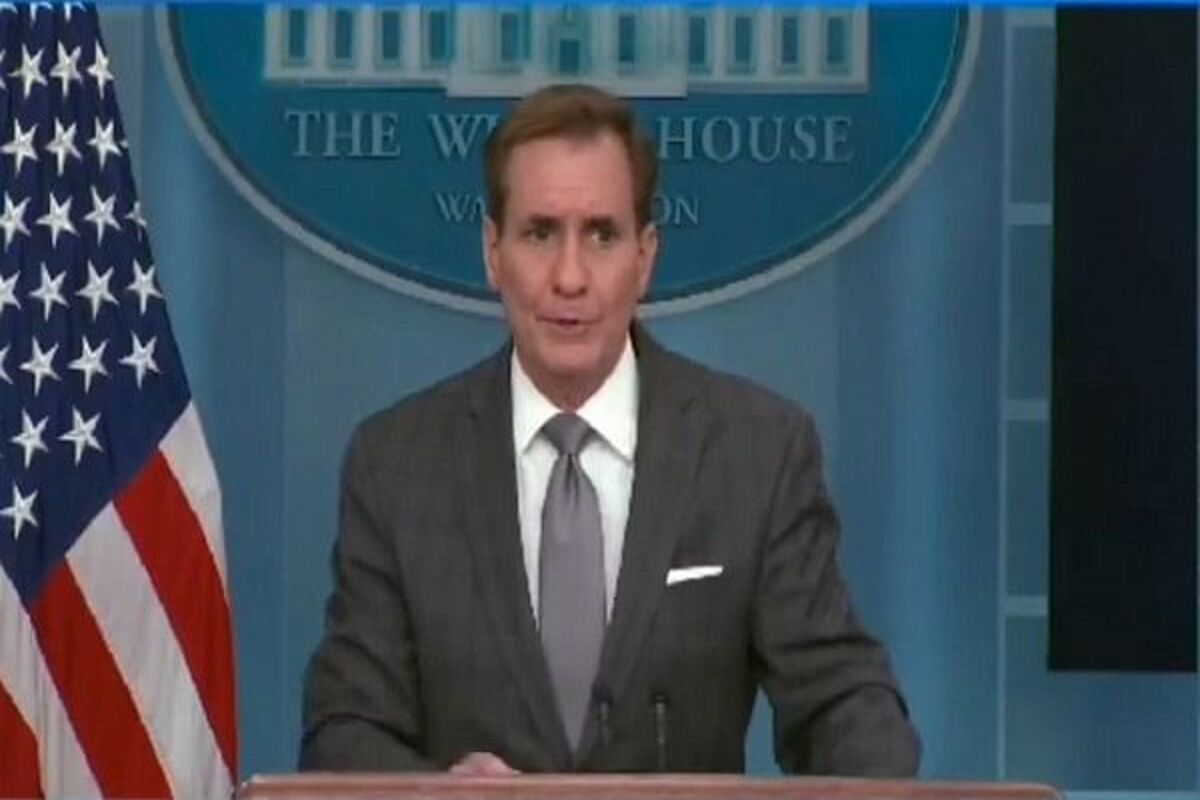The White House cautioned Israel on Tuesday against reoccupying Gaza after Prime Minister Benjamin Netanyahu suggested that Tel Aviv can consider to “have the overall security responsibility” in Gaza “for an indefinite period” once the war is over, the New York Times reported.
White House National Security Council spokesman John Kirby said on “CNN This Morning” that “the president still believes that a reoccupation of Gaza by Israeli forces is not good. It’s not good for Israel; it’s not good for the Israeli people.”
Advertisement
“One of the conversations that Secretary (Antony) Blinken has been having in the region is what does post-conflict Gaza look like? What does governance look like in Gaza? Because whatever it is, it can’t be what it was on October 6. It can’t be Hamas,” Kirby added.
The words of caution came after Netanyahu said Israel would need to oversee the security of the Gaza Strip once the fighting is over to prevent future attacks.
The White House’s latest warning comes after Netanyahu told ABC News on Monday that Gaza should be governed by “those who don’t want to continue the way of Hamas” before adding, “I think Israel will, for an indefinite period, have the overall security responsibility because we’ve seen what happens when we don’t have it.”
As per CNN, it was one of the first hints Netanyahu has given about his vision for a post-war Gaza and suggests a divergent view from that of the US, including US President Joe Biden’s own statements about what the future of the strip would look like.
Biden in an interview with CBS’ “60 Minutes” last month said it would be a “big mistake” for Israel to occupy Gaza. At the time, Michael Herzog, the Israeli ambassador to the United States, told CNN’s Jake Tapper that Israel does not intend to occupy Gaza after the conflict ends.
Other sharp gaps have been emerging between the US and Israel as the war continues, as per CNN.
US Secretary of State Antony Blinken last week pushed the Israelis for a “humanitarian pause” to allow hostages and civilians to leave Gaza and for aid for Palestinians to enter, but was rebuked by Netanyahu.
Despite Blinken’s forceful public message that “civilians should not suffer the consequences for (Hamas’) inhumanity and its brutality,” Israeli forces continued to strike civilian sites in the wake of the top US diplomat’s visit. The forces claimed that the sites were being used by Hamas.
Meanwhile, a senior adviser to Israeli PM Netanyahu, Mark Regev, on Tuesday told CNN’s Christiane Amanpour that Israel’s post-war plan is not an “ongoing occupation” of Gaza.
Asked about Netanyahu’s comments on ABC News on Monday that Israel will have the “overall security responsibility” in Gaza for an “indefinite period” after the war ends, Regev said: “We have to distinguish between a security presence and political control.”
“When this is over and we have defeated Hamas, it is crucial that there won’t be a resurgent terrorist element, a resurgent Hamas. There is no point doing this and just going back to square one,” Regev told CNN.
“There will have to be an Israeli security presence, but that doesn’t mean Israel is re-occupying Gaza, that doesn’t mean that Israel is there to govern the Gazans,” he added.
“On the contrary, we are interested in establishing new frameworks where the Gazans can rule themselves and where there can be international support for the reconstruction of Gaza. Hopefully, we can bring in countries–Arab countries as well–for a reconstruction of a demilitarised, post-Hamas Gaza,” he said.
In just under a month, Israeli strikes have killed more than 10,000 people in Gaza and injured more than 25,000 others, the Gaza Health Ministry said on Monday. The figures from the ministry, which operates under the political arm of Hamas, could not be independently verified, but a Pentagon spokesman, Brig. Gen. Patrick S. Ryder, acknowledged that “we know the numbers are in the thousands.”
Biden spoke with Netanyahu on Sunday and discussed the need to accelerate and increase the humanitarian assistance going into the enclave, Kirby said. “He also talked about the importance of pauses in the fighting.”
Kirby also said the White House is “keeping in our thoughts and prayers the many, many thousands of innocent Palestinians who have been killed in the conflict since Oct. 7, and many more who are injured and wounded in the conduct of the operations,” as reported by New York Times.









